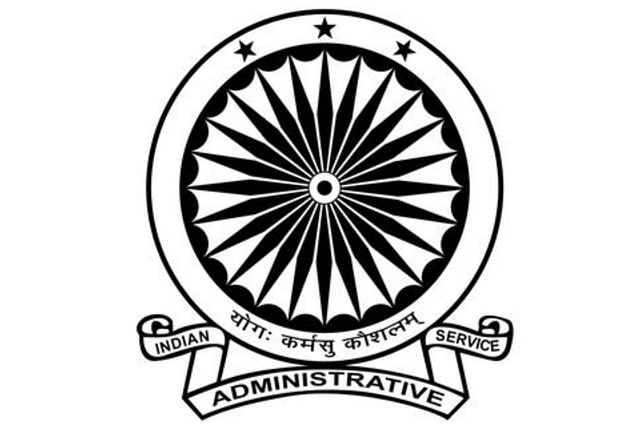
Nine Non-BJP Ruled States Oppose Centre's Proposal On IAS Officers' Deputation
New Delhi, Jan 26 (PTI) As many as nine non-BJP ruled states, including Odisha, West Bengal, Kerala, Tamil Nadu and Jharkhand, have so far joined the clamour against the New Delhi’s proposal giving itself an overriding power while deciding on central deputation of IAS officers, saying they were against the federal structural of the country, officials said on Wednesday.
The central government, on the other hand, has defended the proposal saying that the states are not sparing sufficient number of IAS officers for deputation which is affecting the functioning of the administration at the Centre.
Sources in the Department of Personnel and Training (DoPT) said a trend of decreasing representation of IAS officers, up to the Joint Secretary-level at the Centre, has been noticed as most of the states are not meeting their Central Deputation Reserve (CDR) obligations and the number of officers, sponsored by them to serve at the Centre are much lesser.
Officers of the Indian Administrative Service (IAS) are allocated a cadre, which is a state/states or states and Union territories.
Every cadre is allowed a CDR to ensure that officers have the opportunity to work on central deputation, which adds to their experience.
The DoPT has recently proposed changes in the IAS (Cadre) Rules, 1954, that will take away the power of states to override the Centre’s request for seeking officers on central deputation.
Odisha, the latest to join the list of the opposing states, said the move once come into force will affect the administration of states and have an impact on the implementation of various development projects.
Maharashtra, Kerala, Tamil Nadu, West Bengal, Telangana, Chhattisgarh, Jharkhand and Rajasthan have also raised their voices against the amendments.
Describing the proposed amendments as “draconian” and intended to promote unilateralism, Jharkhand Chief Minister Hemant Soren has asked Prime Minister Narendra Modi to 'bury' the proposals.
West Bengal Chief Minister Mamata Banerjee, first to air her voice against the move, has urged Modi to withdraw the proposal as it would 'create a fear psychosis among officers and impact their performance'.
Tamil Nadu Chief Minister M K Stalin has also asked the prime minister to drop the move that “strikes at the very root” of the nation's federal polity and states autonomy.
Rajasthan Chief Minister Ashok Gehlot has said the proposed changes will violate the constitutional jurisdiction prescribed for the central and state governments, and reduce the spirit of working fearlessly and faithfully by the officers.
Chhattisgarh Chief Minister Bhupesh Baghel, in his opposition, said the proposed amendments are against the spirit of federalism and if implemented may lead to 'collapse' of administrative system of states.
Information and Broadcasting Secretary Apurva Chandra, an IAS officer of Maharashtra cadre, had on Friday said working with both the Centre and state governments broadens the perspective of the officers.
Citing shortage, the DoPT has been writing to the states seeking officers on central deputation.
It had in June last year asked all state governments to nominate more officers for central deputation at the level of deputy secretary, director and joint secretary.
Officers of the level of deputy secretary/director and above are usually appointed in central government ministries/departments (that is, on central deputation) under the Central Staffing Scheme (CSS).
According to DoPT sources, the number of IAS officers on CDR has gone down from 309 in 2011 to 223 as on date.
The non-availability of sufficient number of officers at the Centre is affecting the functioning of the central government since the Centre needs the services of these officers to obtain fresh inputs in policy formulation and programme implementation, the sources said.
Further, the movement of officers from state to Centre and vice versa is mutually beneficial to both as it enables the professional growth of officers besides contributing towards better coordination with the states for effective programme implementation, they said.
The sources further said the reason quoted by most of the state cadres for not sponsoring the number of officers as per prescribed CDR is the shortage of officers in the cadre.
Considering the same and the fact that shortage of officers in the cadres, if any, has to be shared mutually between the Centre and the states, they said.
According to DoPT’s proposal, sent to chief secretaries of all state governments on January 12, “in specific situations where services of cadre officer(s) are required by the central government in public interest, the central government may, seek the services of such officer(s) for posting under the central government…and the state government concerned shall give effect to the decision of the central government within the specified time”.
It further states that “wherever the state government concerned does not give effect to the decision of the central government within the specified time, the officer(s) shall stand relieved from cadre from the date as may be specified by the central government”.
Existing rules allowed mutual consultation for the officers’ central deputation.
The DoPT had written to chief secretaries of all state governments on December 20, 2021, after which reminders were sent on December 27, 2021 and January 6 and January 12.
The January 12 letter to states specifically mentions the Centre’s power to override the states’ disagreement on sending the officers on deputation.
(This story has been published from a wire agency feed without modifications to the text. Only the headline has been changed.)